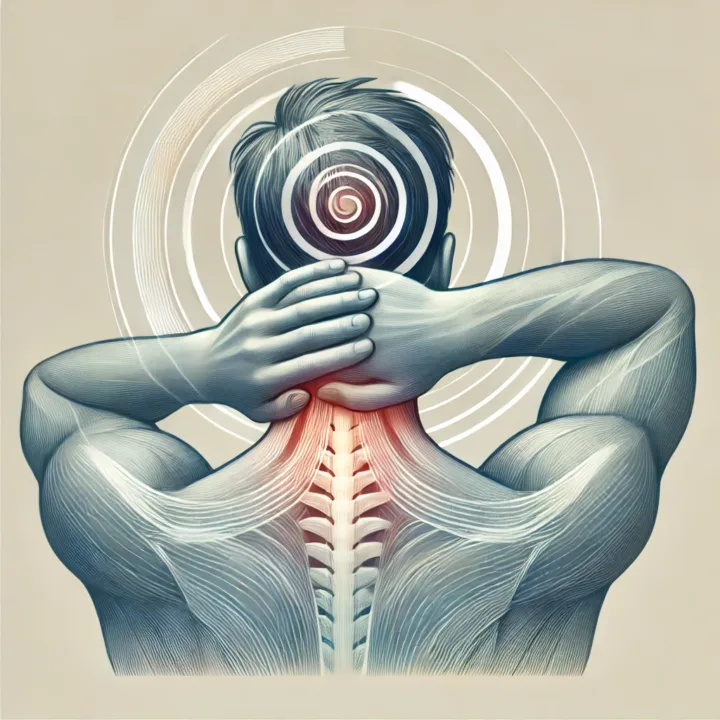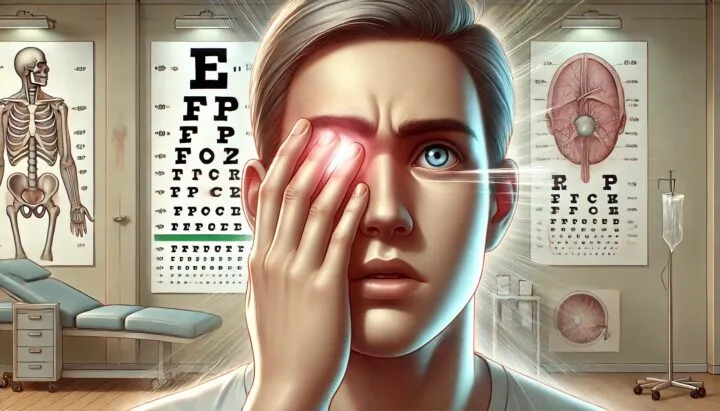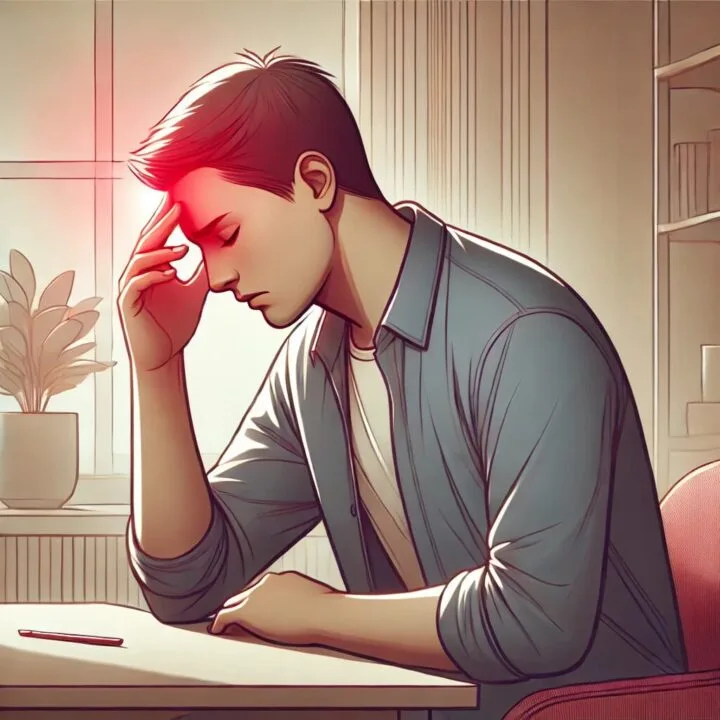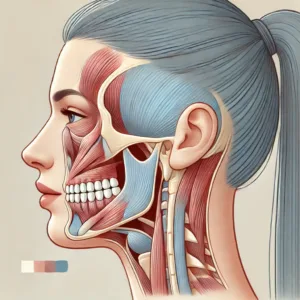Do Tension Headaches Make You Dizzy? Understanding the Link and Finding Relief

Do Tension Headaches Make You Dizzy? Understanding the Link and Finding Relief
Introduction
Have you ever felt dizzy or lightheaded while experiencing a tension headache and wondered, “Do tension headaches make you dizzy?” You’re not alone. While tension headaches are commonly known for causing tight, band-like pain around the head and neck, many people report accompanying dizziness that can leave them feeling off-balance or disoriented.
Tension headaches are often triggered by stress, muscle tension, or poor posture, and dizziness is a lesser-known symptom that can add to the discomfort. But what causes this connection between headaches and dizziness? In this blog, we’ll explore the underlying mechanisms, common symptoms, and effective remedies to help you find lasting relief.
What Are Tension Headaches, and How Do They Relate to Dizziness?
Tension headaches are the most common type of headache, characterized by a dull, aching pain that wraps around the forehead, temples, or back of the head. Unlike migraines, tension headaches typically don’t involve severe symptoms like nausea or visual disturbances, but they can still be debilitating.
Why Tension Headaches Can Make You Dizzy:
- Muscle Tension in the Neck and Shoulders:
The muscles in the neck and shoulders are closely connected to the head and inner ear, which controls balance. Prolonged muscle tension can compress nerves or restrict blood flow, leading to dizziness. - Reduced Blood Flow to the Brain:
Tight muscles from a tension headache may reduce blood flow to certain areas of the brain, contributing to feelings of lightheadedness or faintness. - Vestibular System Involvement:
The vestibular system in the inner ear regulates balance and spatial awareness. When tension headaches cause neck stiffness, they may indirectly affect the vestibular system, leading to dizziness.
Common Symptoms of Tension Headaches with Dizziness
When tension headaches are accompanied by dizziness, you may experience the following symptoms:
- Dull, pressure-like pain around the forehead, temples, or back of the head
- Tightness or stiffness in the neck and shoulders
- Lightheadedness or fainting sensations
- A sense of imbalance or unsteadiness
- Blurred vision or difficulty focusing
- Fatigue and general weakness
If these symptoms persist or worsen, it’s important to seek medical advice to rule out any underlying conditions.
Why Does Poor Posture Worsen Both Headaches and Dizziness?
Many tension headaches are linked to poor posture, especially when sitting for long periods or using electronic devices. Slouching or craning your neck forward can strain the muscles in your neck and upper back, triggering headaches and compressing blood vessels that affect balance.
Signs Your Posture May Be Contributing:
- Rounded shoulders
- Forward head posture (tech neck)
- Stiffness in the neck and upper back
Correcting posture and practicing ergonomics can go a long way in preventing recurring tension headaches and dizziness.
How to Differentiate Between a Tension Headache and Other Headache Types
While tension headaches are common, it’s important to distinguish them from other types of headaches that can also cause dizziness.
Tension Headache vs. Migraine:
- Tension headache: Dull, constant pain without severe nausea or sensitivity to light
- Migraine: Throbbing pain, often on one side of the head, with additional symptoms like nausea, light sensitivity, and dizziness
Tension Headache vs. Cervicogenic Headache:
- Tension headache: Originates from muscle tension in the head, neck, or scalp
- Cervicogenic headache: Originates from neck problems, often leading to referred pain in the head and dizziness
If your headaches are accompanied by severe dizziness, nausea, or vision disturbances, consult a healthcare professional to rule out migraines or vestibular disorders.
Effective Remedies for Tension Headaches with Dizziness
1. Practice Neck and Shoulder Stretches
Stretching the muscles in the neck and shoulders can help relieve tension and restore proper blood flow, reducing both headaches and dizziness.
- Neck stretches: Slowly tilt your head toward each shoulder and hold for 10-15 seconds.
- Shoulder rolls: Roll your shoulders forward and backward to release tension.
2. Improve Posture and Ergonomics
- Use a chair with proper lumbar support.
- Keep your computer screen at eye level to avoid neck strain.
- Take frequent breaks to stand and stretch, especially if you work at a desk.
3. Stay Hydrated
Dehydration can exacerbate both headaches and dizziness. Aim for at least 8 glasses of water per day, especially if you’re physically active or live in a hot climate.
4. Apply Heat or Cold Therapy
- Heat therapy: Use a heating pad to relax tight muscles in the neck and shoulders.
- Cold therapy: Apply a cold pack to the forehead or back of the neck to numb pain.
5. Manage Stress Levels
Stress is a major trigger for tension headaches. Incorporate stress-reducing activities like meditation, yoga, or deep breathing exercises into your daily routine.
6. Over-the-Counter Pain Relief
Non-prescription pain relievers like ibuprofen or acetaminophen can provide temporary relief. However, avoid overuse to prevent rebound headaches.
7. Vestibular Exercises for Dizziness
If dizziness persists, vestibular rehabilitation exercises, such as head turns or balance training, can help recalibrate the body’s balance system.
When to See a Doctor
While most tension headaches and dizziness are manageable with home remedies, you should seek medical attention if you experience:
- Persistent or worsening dizziness
- Severe headaches that don’t improve with rest or medication
- Neurological symptoms like vision changes, confusion, or numbness
- Nausea or vomiting accompanying the headache
A doctor can rule out more serious conditions like migraines, vestibular disorders, or neurological issues.
Conclusion
So, do tension headaches make you dizzy? Yes, they can, especially when muscle tension, poor posture, or reduced blood flow are involved. The good news is that most cases of tension headaches with dizziness can be managed effectively through simple lifestyle adjustments, stretches, and hydration. If you’re experiencing persistent symptoms, don’t hesitate to seek professional guidance.
Taking care of your posture, staying hydrated, and managing stress can help you find lasting relief and prevent future episodes. With the right approach, you can break the cycle of tension headaches and dizziness for good.
FAQ
1. Can stress-induced tension headaches cause dizziness?
Yes, stress can tighten muscles in the neck and shoulders, reducing blood flow and leading to dizziness.
2. How long does dizziness from a tension headache last?
Dizziness typically subsides once the headache is relieved, but it can last anywhere from a few minutes to several hours.
3. Are tension headaches dangerous?
Tension headaches are usually not dangerous, but persistent or severe symptoms warrant a doctor’s evaluation.
4. Can dehydration make tension headaches and dizziness worse?
Yes, dehydration can exacerbate both headaches and dizziness, so staying hydrated is key to prevention.
5. What’s the best sleeping position to prevent tension headaches?
Sleeping on your back with a supportive pillow that keeps the neck aligned is ideal.













Post Comment